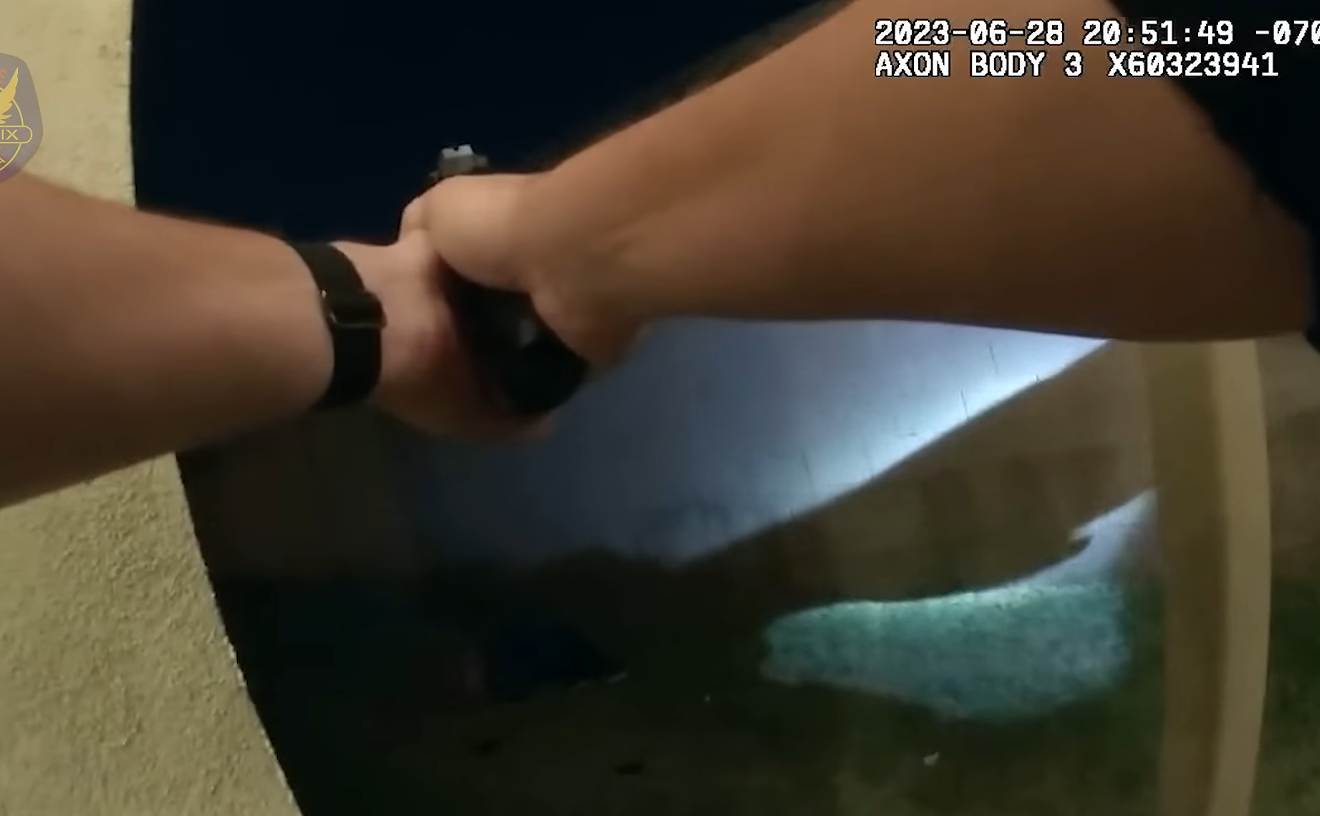The 59-year-old man has been going through a 12-step program since getting sober in 2007. But he had yet to face the biggest burden that he was still carrying — something that happened around the time he started drinking and using drugs at the age of 13.
The ad told him that under a law passed last year, survivors of sex abuse as children who are now over the age of 30 had until the end of 2020 to file a lawsuit about their abuse.
So, earlier this year, Brown contacted the attorney from the ad and told him something he had never told anyone before: Before he even began high school, he had been molested by his supervisor at his job delivering the Arizona Republic and the now-defunct Phoenix Gazette.
At the time, Brown only had his story and the name of the man, remembers John Charland, who now works as Brown's attorney. Charland had handled a few sex abuse cases in the past and he found Brown immediately convincing, so they started looking for more information.
What they soon discovered was shocking. The man Brown says abused him, James Allen Robertson, had been convicted in 1980 of doing the same thing to other boys. A Phoenix New Times article by Tom Kuhn from May 7, 1980, reported that he admitted to molesting 35 children under the age of 10. Ten boys he assaulted were other paperboys he supervised.
Kuhn's article reported that, in exchange for reduced charges, Robertson testified that he was part of a ring that groomed and abused children, and detailed how members of the circulation department for Phoenix Newspapers, Inc, which operated the two papers Brown delivered, turned a blind eye to or abetted the abuse.
Now, Brown has filed a lawsuit seeking justice and closure.
“The more I dig into it, the more memories I dig up," he told New Times Monday. "It's okay, though. It’s something I need to do. It’s something I need to settle.”
He said he hopes this will help inspire other survivors of abuse to come forward and file suits before the deadline at the end of this month.
The lawsuit, filed in Maricopa County Superior Court last week, names Phoenix Newspapers, Inc, now the corporate name of the Arizona Republic, and three corporate entities that currently own the Republic.
Also named is Robertson, who was sentenced to a minimum of seven years for his crimes, and his former boss, Robert John Bresee, who was sentenced to a minimum of 12 years for his involvement in the ring.
The lawsuit charges Robertson with assault, battery, and false imprisonment. It also charges that the newspaper company was not just negligent, but a co-conspirator that engaged in racketeering by protecting the child sex abuse.
That lawsuit asks for triple damages as a result of the racketeering charge, as well as regular damages and attorney fees.
Gannett, the newspaper chain which operates the Republic, declined to comment.
Charland, the attorney who filed the suit, told New Times that the newspaper profited by ignoring allegations against two talented members of the circulation department whose work was making money for it. The newspaper today is built in-part on those profits, he alleges. The newspaper today is built on those profits.
“There are powerful organizations that have had a lot of dealings with children, that have been allowed to get away with what these days would be shocking to the conscience — and should have been shocking to them then," he said.
The details in this story come from the newly filed lawsuit, court records in the original case and Kuhn's comprehensive article.
The Group
In the 1970s, Bresee and Robertson, both in their 30s, were members of Phoenix Newspapers, Inc's circulation department, which distributed the two daily newspapers. The two men supervised 35 to 50 children and teens employed as paper carriers at a time.In his testimony, Robertson said the ring, known as "The Group" to members, targeted low-income paperboys with single mothers for abuse: grooming them with trips meant for high-achieving paperboys, showing them pornographic images, and coercing them financially.
Some of the boys were pimped out by the group and they often used Polaroid cameras to produce child sex abuse media that served as further coercion. In at least one case, they threatened to go after a child's family.
Robertson, who said he was molested himself at age 12, began abusing paperboys to save money that he was spending on underage boys who were being prostituted. At times, he took money from the newspaper to fund his efforts, buying presents such as baseballs or erector sets to groom boys.
One survivor of the abuse, then 17, was psychologically evaluated as part of the case against Bresee. He told the examiner he took the paperboy job as an adolescent to help out because his mother had a tumor in her ear.
When Robertson heard this, he told the boy that he could get him thousands of dollars just for a nude photo. However, after Robertson took the photos, he hung onto them and the boy felt trapped into sexual acts with him and Bresee.
"I don't know — life almost didn't seem worth living anymore," the boy said, according to a report contained in court records.
'The Big Boys'
The lawsuit asserts that circulation director Donald Martz and two circulation managers were informed of the abuse but took no action to address the situation.At the time of the 1980 court case, one parent told New Times that they had reported the abuse to a manager of the circulation department two years earlier, but nothing was done.
The abuse survivor told New Times he spoke in terms of other people when he made the report, due to embarrassment, but the manager promised to keep his identity a secret. The next day, all the other paperboys knew, he said.
Robertson testified that Bresee told him that manager Jesse Detrick knew about the complaint but "let it ride." In a jailhouse interview with New Times at the time, he said that Detrick used his power to kill the complaint.
Robertson said he expected for months to lose his job due to the complaints, but nothing happened.
When asked about the allegations in 1980, Martz said that it was the first he'd heard of the complaint and would be very concerned if such a complaint had been filed. Detrick declined to comment.
Martz passed in 2010. His obituary published in the Republic notes that he served as the circulation director for 23 years. Detrick passed in 2015. His obituary published in the Republic notes that he was a former paperboy who retired from the paper as a Circulation Zone Manager.
Beyond the allegations of negligence, there is evidence that employees of the paper used its prestige in an attempt to suppress a police investigation.
County investigator Dan Ryan testified during the a hearing in the case that after Phoenix police opened an investigation, a detective received a call from Allan Swabb, second-in-command of the circulation department and Bresee's supervisor, who warned the detective that he was "messing with the big boys." Swabb said Bresee would sue the city as he was a "Jew boy" with money.
Swabb could not be located for comment this week.
Even after Bresee was arrested, he stayed on the paper's payroll and Swabb helped him get a job at a newspaper in California by claiming the charges had been dropped.
Around this same time, a man named Michael Rhymes was hired by the circulation department, despite being prosecuted for child molestation. While he was eventually cleared of those charges, when police arrived to arrest him at work for a murder case, police told New Times he appeared to have been warned that they were looking for him and tried to escape. Rhymes denied this.
The Lawsuit
According to the lawsuit, the plaintiff, Brown, came from a low-income, single-parent household — the type targeted by the ring.After he started working as a paperboy, Robertson had other paperboys persuade Brown into letting Robertson pay him to take photos of him with his shirt off. From there, Robertson took more revealing photos and began molesting him regularly, the lawsuit alleges. Robertson said the pictures were being distributed to people, including those on the newspaper staff.
When Brown pushed back on the abuse, Robertson fired him. Brown was 13 at the time and had yet to start high school. He felt enormous shame over the abuse.
While he doesn't draw a direct line between the abuse and what happened next, Brown soon started drinking and using drugs, eventually dropping out of school.
“It just hit me really emotionally," Brown said. "My school went to hell, I started using drugs and alcohol. I had all types of problems. I’ve never been able to get married and have kids… There are just a lot of things that have affected me in a lot of ways.”
For years he moved from town to town and job to job.
“For 30 [years], however many years, I was just hopeless,” Brown said.
In 2007, he joined a 12-step program and got clean and sober. The program emphasizes addressing issues head-on. When he saw the ad informing him that child sex abuse survivors only had until the end of the year to file a lawsuit, he realized this might be his only chance. So he reached out to Charland and filed a police report with the Phoenix police department, he said.
“I’m ready to do this 100 percent," he said. "This is my only opportunity I ever had to take care of this. Besides that, I want to tell people what he did.”
Much of the details in the lawsuit come from the 1980 New Times article about the criminal case against Robertson and Bresee. While the case concerned Republic employees, a review of archived papers online shows that the Republic only published a series of short briefs on the legal case and did not interview any of the survivors of the abuse.
Charland says he thinks the past revelations make for a strong case.
“If Robertson tells me everything he told the New Times reporter, that’s very powerful evidence,” Charland said.
The New Times article noted that while the boys who testified in court received care, the other survivors of the abuse were not eligible for support under the state industrial insurance program because they were considered independent contractors.
Brown's lawsuit is the latest in a string of child sex abuse suits brought under an Arizona law passed last year which gives survivors until they are 30 years old to file a lawsuit. Survivors previously only had until they were 20 years old to do so.
The law also gave survivors currently over the age of 30 until the end of 2020 to file a lawsuit. This has resulted in a flood of lawsuits, many directed against the Catholic Church.
Gannett is currently facing a lawsuit in New York from seven former paperboys who say they were abused by an employee of the newspaper in the city of Rochester. That lawsuit was filed under a law there also extending the window for child sex abuse survivors to file suit.
Charland said that despite the large number of children abused it's unlikely more lawsuits will be forthcoming in this case, as they would have to be filed in the next three weeks.
“This is probably going to be the only chance for anybody to say the newspapers did wrong,” he said.
This may also be because survivors didn't know they could sue. Brown said he didn't until he saw the ad.
He hopes the lawsuit will inspire other survivors of the abuse to speak up. When asked what he would do with the money, he has to pause to think before saying he'd probably put it away somewhere for retirement.
“I didn’t get into this for money," he said. "I got into this for justice."
Update: Robertson talks to New Times.
Read the original Phoenix New Times story here:












